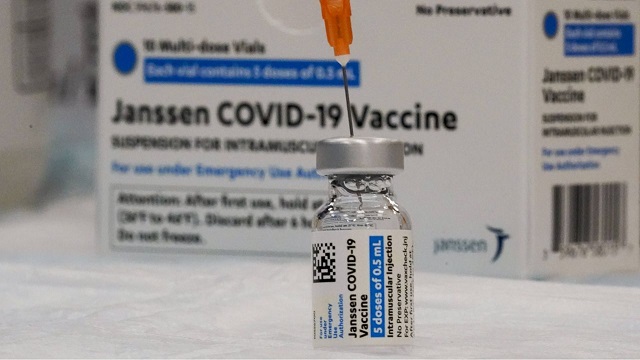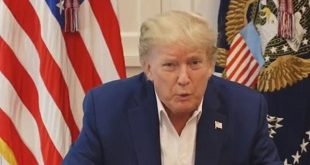
The battle illustrates the continuing contentiousness surrounding COVID and how government officials are trying to reduce its spread
Washington, U.S. | Xinhua | A U.S. federal appeals court over the weekend temporarily blocked the White House’s vaccine mandate for businesses with 100 or more employees, raising concerns over whether more challenges could pop up.
The move came after Republican attorneys general in the states of Utah, Louisiana, Mississippi, South Carolina and Texas filed petitions that would challenge what they viewed as Washington’s unconstitutional approach to getting more people vaccinated.
The U.S. Fifth Circuit Court of Appeals ordered a halt to the vaccine mandate because “the petitions give cause to believe there are grave statutory and constitutional issues with the Mandate.”
The judges who blocked the mandate were appointed by former Republican presidents Ronald Reagan and Donald Trump.
Seema Nanda, Labor Department head attorney, said the White House is prepared to defend the vaccine mandate in court, according to U.S. media.
The mandate is being implemented by the Occupational Safety and Health Administration (OSHA), and under emergency authority that enables the department to circumvent the usual process of implementing safety standards for workplaces. The lengthy process often takes a number of years to implement, but has taken OSHA a few months in this case.
The U.S. administration’s mandate requires all employees at companies with more than 100 workers to get the jab.
But several Texas businesses are challenging OSHA’s right to issue safety standards on an emergency basis, contending that the mandate amounts to granting unconstitutional legislative powers to the White House.
Nanda said Washington’s vaccine mandate “preempts any state or local requirements that ban or limit an employer’s authority to require vaccination, face-covering, or testing,” U.S. media reported.
The legal challenge came on the heels of last month’s ban on vaccine mandates in Texas by the state’s Governor Greg Abbott.
Texas Attorney General Ken Paxton said last week that the vaccine mandate was an “abuse” of the federal government’s power, adding that it went beyond the “limited” responsibilities of OSHA, according to CNBC.
MORE LEGAL CHALLENGES
Experts said the blocking of the vaccine mandate could foreshadow an uphill slog for the U.S. administration, as it may cause more legal challenges.
“The decision will be appealed and likely end up in the Supreme Court,” Brookings Institution Senior Fellow Darrell West told Xinhua.
“Republicans are seeking to block the vaccine mandate, but will need judicial approval to be successful. Whether the mandate sticks depends on how justices rule,” West said.
“The battle illustrates the continuing contentiousness surrounding COVID and how government officials are trying to reduce its spread,” West said.
According to a Gallup poll released in September, 56 percent of Americans favor vaccine mandates at their office or work site.
At the same time, however, many U.S. workers strongly oppose vaccine mandates.
Clay Ramsay, a researcher at the Center for International and Security Studies at the University of Maryland, told Xinhua that the United States will “definitely” see more judges and governors block vaccine mandates going forward.
Over the weekend, city employees in Pittsburg took to the streets to protest Washington’s vaccine mandate. In the U.S. city of Boston, clashes broke out between protesters and counter protesters during a demonstration in which opponents blasted the mandate.
Protests also broke out in the U.S. state of Kentucky. Health care workers gathered in Utah to oppose the mandate over the weekend.
Last week, in Wichita in the state of Kansas, thousands of employees at two major aircraft companies decided to remain unvaccinated in defiance of the federal mandate, a union official was quoted by Reuters.
“We’re going to lose a lot of employees over this,” said Cornell Beard, head of the local Machinists union district, according to Reuters.
While many workers were not against COVID-19 vaccines, they opposed what they view as government meddling in their personal health decisions. The issue has been part of a larger partisan battle in Washington.
Wendy Parsons, a manager in her early 40s at a company in Virginia, told Xinhua that while she voluntarily got the jab several months ago, she did not believe it should be a workplace requirement.
A number of Republican governors, most notably those of Florida and Texas, have also opposed vaccine mandates.
Announcing the vaccine mandate in September, U.S. President Joe Biden said “my job as president is to protect all Americans.” But the Republicans objected to the mandate from the beginning.
Washington is “forcing an unconstitutional, un-American federal decree on businesses and families,” said Republican National Committee Chairwoman Ronna McDaniel.
The battle over what role the U.S. government should play in curbing the spread of COVID-19 has been unfolding since early 2020.
Dorothy Johnson, a retired nurse in the state of New Jersey in her 70s, told Xinhua that getting the vaccine should be a choice “between a patient and their doctor,” not a decision of the government.
Linda Hunter, a housewife in her 60s, told Xinhua that she’s in favor of getting the vaccine, in a bid to contain the spread of the deadly virus.
*****
Xinhua
 The Independent Uganda: You get the Truth we Pay the Price
The Independent Uganda: You get the Truth we Pay the Price


